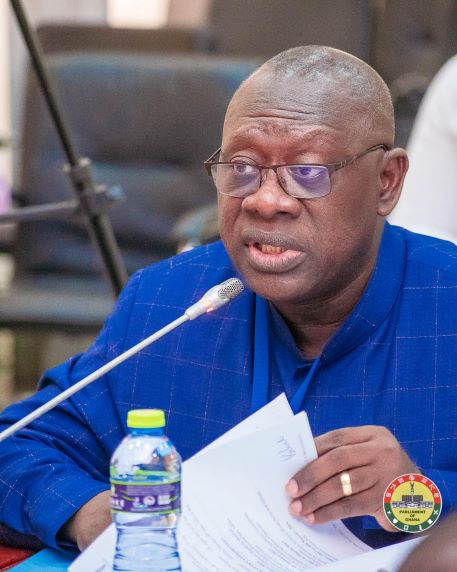Minister of State-designate for the Ministry of Local Government, Decentralisation and Rural Development, Mr Osei Bonsu Amoah has justified the decision that Ghana Revenue Authority (GRA) should collect property tax.
The idea of having GRA collect property taxes has attracted criticism for potentially strangling assemblies which are empowered by law to collect property rates.
Assemblies, gov to share revenue
He explained that for the assurance of cost recovery by the government in providing infrastructure for the collection of property rate, it is implied that a share ratio will be decided upon with the Assemblies.
Public Accounts Committee vetting
Answering questions at the Public Accounts Committee Amoah insisted that the collaboration with the GRA bodes well for broadening the tax net.
Rateable value of a property
Property rate is a levy imposed on immovable property at a specified rate on the rateable value of a property.
Amount charged varies
The amount charged varies between specified areas of a district and in respect of property used for different purposes – commercial, residential or mixed-use and area classifications – first class, second class and third class.
Property rates collection digitalised
Property tax collection had therefore been digitalised, making it easier for Ghanaians to pay.
Now, all property owners are expected to pay for their properties using the government’s cashless system, thanks to the partnership between the GRA and Metropolitan, Municipal, and District Assemblies (MMDAs).
The government has been held accountable for failing to raise much-needed revenue through property taxes.
“The Ministry of Finance has been complaining for some time now that the amount of revenue they expect from property rates administration is a bit disappointing.”
“The assemblies have also not been able to meet the required levels because they have their own challenges, the mode of collection, the billing systems, and enforcement arrangements. We collect peanuts and at times, for years, no assessments are made.
“So this whole arrangement with GRA brings in a certain amount of reform and dynamism, so we reap so much from property rate. This is the best way to go.”
“Some assemblies have said that when it comes to enforcement, they are handicapped. We need a situation where people will be named and shamed and prosecuted. The law has made those provisions and we have let people know this that are why the system has been modernized”, Amoah added.
Handicapped in the enforcement of property rates
The nominee, who is also the Member of Parliament (MP) for Akuapem South noted that some Assemblies observed that they were handicapped in the enforcement of property rates.
“We need a situation where people will be named and shamed and prosecuted. The law has made those provisions and we have to let people know this, that is why the system has been modernised,” he said.
Creation of 6 additional regions
On the creation of six additional regions in 2018, he said it was to fast-track development.
According to him, government decided to add the six new regions to the original 10 to deepen democracy, fast track their development as well as bring governance to the doorstep of the people.
“You could see that a lot has been done, the statistics showed that indeed, for the six regions, they’ve become very fortunate, fortunate in the sense that the kind of drive that the Minister led in getting these regions created, which indeed, is phenomenal, it is history,” he said.
Mr Amoah noted that a lot has gone into the creation of the six new regions, stating that as at the last count about 50 projects, which they had earmarked, about 33 of them had been completed and the rest were at various stages of completion.
He cited the Regional Coordinating Council Office building in the Western North Region as an ultramodern edifice.
The nominee, said the regional officers of the various agencies of government had been posted to all the six newly created regions
He said a lot had been done in three Regions, which were carved out of the former Northern Region; saying “and I think if we continue and have more resources, a lot more can be done.”
Mr Amoah said the first thing District Chief Executives need to know was to know what the law prescribes.
According to him, when it comes to unauthorized citing of structures, the law mandates Chief Executives to give notice, ask offenders to update, to even ask for modification and to serve notice and then to go ahead and if possible to demolish the structures.
“For public spaces, you just go ahead and demolish because that structure is not required to be at that place,” he stated.
He said this was because the land in question did not belong to the offender and therefore, he could not site the structure there.
He justified the demolition of some buildings sited close to the Sakumono Ramsar site describing it as a step in the right direction.
Mr Amoah commended Mr Henry Quartey, who is also the Greater Accra Regional Minister, for championing the efforts to get rid of illegal structures with the Greater Accra Metropolitan Area.
- Monday, April 28, 2025 Newspaper Headlines - 28 April 2025
- Oquaye report findings revealed - 28 April 2025
- GFA President Kurt Okraku appointed CAF’s second Veep - 28 April 2025

